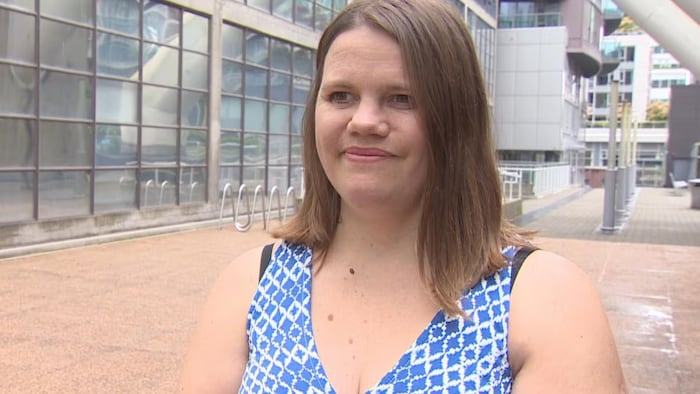Business and Economy
1 in 3 B.C. workers don’t make living wage, report finds

A report from the Canadian Centre for Policy Alternatives finds one-third of B.C.’s workers aren’t making the living wage in their community and over 400,000 earn less than $20 per hour. PHOTO: CBC
B.C. labour ministry cites action on minimum wage, cost of living
British Columbia’s minimum wage will rise by 65 cents an hour on Saturday (new window) but two groups say more change is needed for workers struggling to make ends meet.
A new analysis of Statistics Canada data by the Canadian Centre for Policy Alternatives and Living Wage for Families B.C. shows one-third of workers in the province don’t make a living wage — the hourly rate two working adults need to earn to meet a family of four’s basic needs like food, clothing, housing and transport.
The living wages calculated by the two organizations vary from $20.64 in Dawson Creek to $26.51 in Clayoquot Sound — all above the soon-to-be minimum wage in B.C. of $17.40.
Any increases to the minimum wage are a good thing,
said Anastasia French with Living Wage for Families B.C.

Anastasia French of Living Wage for Families B.C. says the province should increase the minimum wage to at least $20 an hour. PHOTO: CBC
What we need the government to do is to increase the minimum wage to at least $20 an hour and also look at what they can do to lower the cost of housing and … food so we can close that gap between the minimum wage and the living wage.
The report says workers not earning a living wage can work multiple jobs, face debt or make tough choices on essential expenses. Some turn to charities or food banks. Others suffer physical and mental health problems.
‘Gender and racial gap’
The authors used data from Statistics Canada’s Labour Force Survey to look at the 400,000 workers in B.C. making less than $20 per hour and the 650,000 who don’t earn a living wage in seven of the province’s largest urban areas.
Of those earning less than $20 hourly, 59 per cent are women, 52 per cent are racialized and 56 per cent are aged 25 or older.
There’s a real gender and racial gap,
said French. Half of all racialized women in Metro Vancouver don’t earn a living wage.
French says action is needed to both increase pay for low-wage workers and lower costs of living, especially food and housing.
The $20 minimum wage her group is advocating for is realistic,
she said, but the Canadian Federation of Independent Business said in a May statement that mandating a $20-an-hour living wage would put more than 75,000 small businesses in B.C. at risk of becoming unprofitable.
That group says business owners think the government should focus on tax changes, housing initiatives and targeted support for low-income earners to help affordability.
Minimum wage ‘highest of all provinces,’ says ministry
B.C.’s Ministry of Labour says it is reviewing the report but acknowledged people across the province are finding it difficult to make ends meet
and global inflation is adding pressure.
This government has made consistent increases to the minimum wage since 2017 to prevent the lowest paid workers from falling behind,
it said in an emailed statement.
The minimum wage had been frozen for most of a decade and was one of the lowest in Canada as recently as 2016. With this increase, it will be the highest of all provinces.
It noted future increases will continue to be tied to inflation and said the government has taken action on affordability through reduced costs for child care, electricity, and car insurance, along with a cap on rental increases and measures to address food insecurity.
Liam Britten (new window) · CBC News
This article is republished from RCI.





















